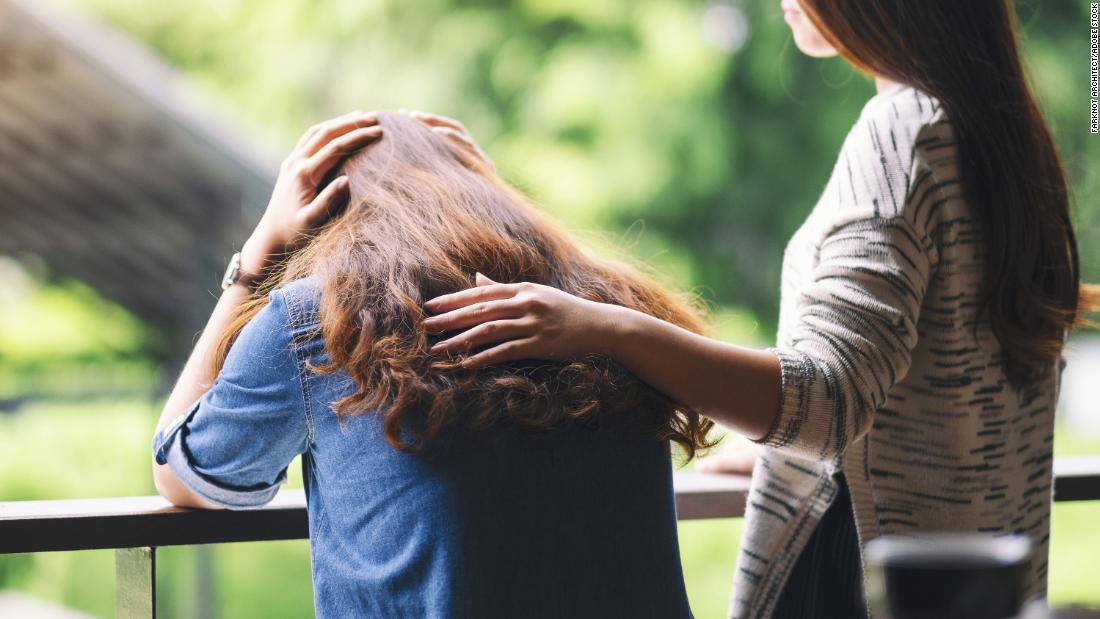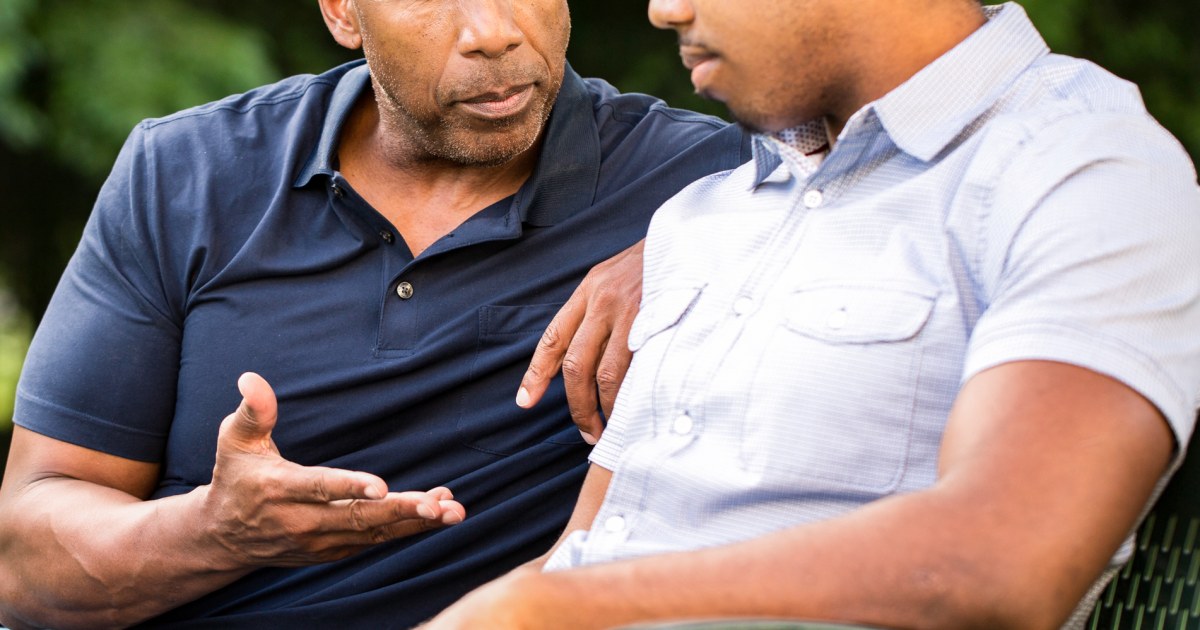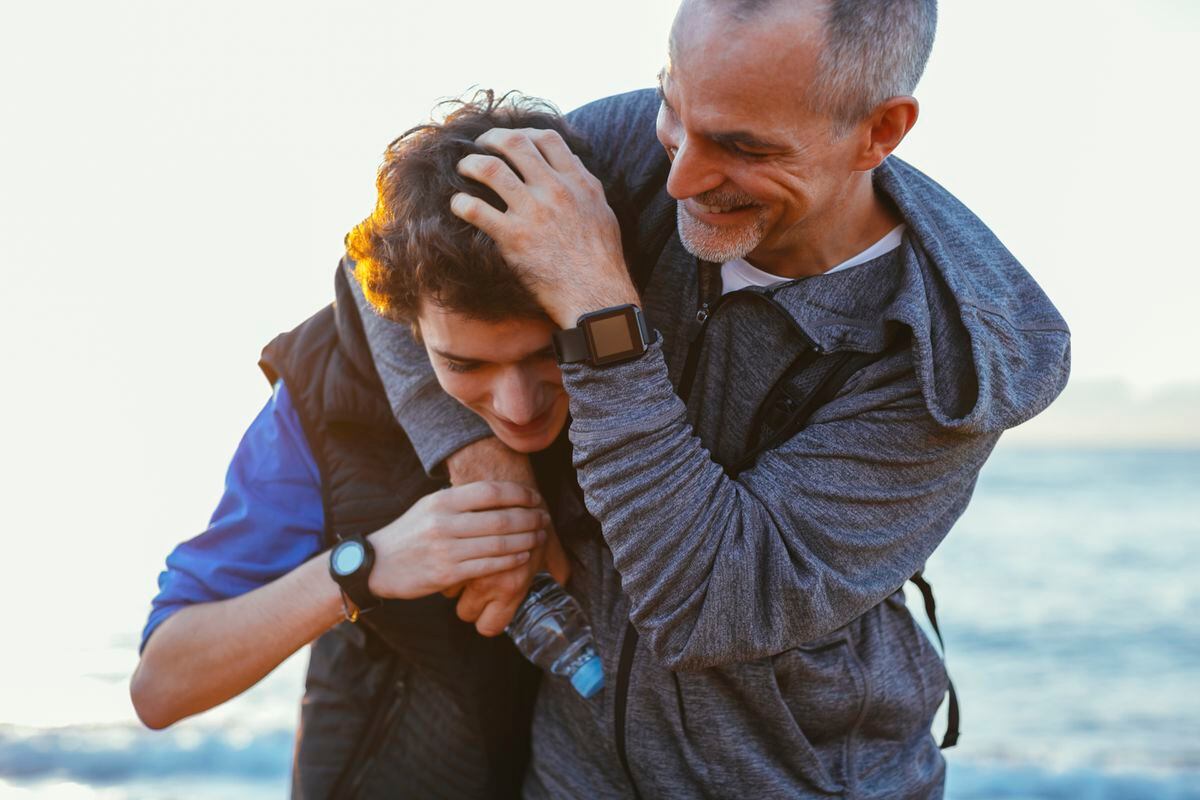Extracurricular activities help with mental health 0:42
(CNN) -
Teens who have close and secure relationships with their families are more likely to show empathy towards their peers, according to a new study.
More specifically, when adolescents feel safe, supported, and connected to their parents or other adult caregivers, they are better equipped to convey the empathy they receive to others.
"I don't think teens in particular like being told what to do, and I don't think telling teens to empathize with other people works," said Jessica Stern, lead author of the study and a postdoctoral fellow in the department. of Psychology from the University of Virginia.
"But what does work is to show them empathy, and to transmit it to the people in their lives."
Stern's work revolves around how having safe relationships contributes to prosocial behavior, that is, behavior driven by the intention to benefit others.
The researcher studies parent-child relationships, also known as attachment theory, which is "the idea that all human beings have a fundamental need for connection," but the quality of those connections may be different.
Stern says those differences are important because they "shape who we become over time."
Teens who are more empathetic show lower levels of aggression and prejudice and are less likely to bully, Stern added, so it's important to understand how relationships shape empathy.
The study, conducted at the University of Virginia Teen Research Group, followed 174 teens ages 14 to 18 to track their progress annually.
At age 14, the researchers interviewed teens about their family relationships using a modified version of the Adult Attachment Interview, which is considered the "gold standard" for assessing a person's attachment mental state, according to the study. .
advertising
Stern said this prompted the teens to share descriptions and stories about their families.
The researchers paid attention not only to what the teens were saying, but also to how they expressed it.
"Some of those stories have a lot of pain, others have a lot of real beauty and closeness, but we really look at how teens tell their stories," Stern said.
"So, can teens talk about their close relationships in a way that is calm and clear? Can they take a possibly difficult situation and make sense of it?"
Effects of the pandemic: "Adolescents cannot take it anymore"
Following these initial interviews, the researchers saw the participants again at ages 16, 17, and 18 and observed their interactions with a close friend.
The researchers looked at how the participants responded when their friend raised a problem and confided in them, assessing the extent of the participants' empathy.
Adolescents who had more secure family relationships showed greater empathy for their friends at ages 16 and 17 than did less secure adolescents.
But it's not all bad news, as less confident teens "caught up" with their empathic behavior at age 18, much to Stern's surprise.
This is cause for hope, she noted, because it may indicate that those empathic skills may develop over time for teens who don't have great relationships at home.
Stern suggested that having strong friendships or a trusted teacher could influence the empathy of insecure teens, but said more research would be needed to find out more.
The results are consistent with numerous previous research linking positive relationships with the development of empathy in adolescence, said Mary Buckingham, a research assistant professor at Tufts University's Institute for Applied Research in Youth Development.
She did not participate in the study.
"Relationships with important adults influence the development of empathy," Buckingham said.
"The results suggest that, to raise an empathic adolescent, parents must model and nurture empathy."
Empathy is both a trait and a skill.
Learn how to strengthen it
The researcher said that, as indicated in the study, the research shows a correlation between safe relationships and empathy, but it should not be interpreted as a causal relationship at this time.
Further research should examine not only the quality of the attachment relationship between a parent and their child, but also the potential impacts of socialization and other aspects of parenting, Buckingham added.
Since the research focused on the study sample averages, she also said that it is necessary to examine individual differences between participants.
"The article does not clarify the individual differences that might exist within adolescents and the developmental specificity of each adolescent that might be occurring," Buckingham said.
"Future research should examine which specific experiences, for which young people, in what broader contexts, at what moments in life, can lead to bonds of attachment and empathy."
Breastfeeding for any duration is linked to lower blood pressure in young children, study finds
More research is already underway on this particular group of participants, who are now in their 30s, Stern said.
Led by Joseph Allen, professor of psychology and head of the Teen Research Group at the University of Virginia, the researchers are interested in seeing how the empathic capacities they examined in adolescents now shape their romantic relationships and parenting behavior as adults. .
Being able to pick up on other people's emotions and see from their point of view is important "for a variety of other things that we consider positive in the world," Stern said.
For parents and even teachers, Stern advises understanding the need for empathy and really getting into relationships with teens.
Role models of empathetic behavior, such as treating others with kindness, respect, and support, can help teens internalize that behavior, whether or not they are aware of it.
ANALYSIS |
Teens' stress has increased for a pandemic year.
So we can help you
Adults should also encourage teens to foster relationships with their friends, which the study found also helps develop empathy as a skill, Stern said.
However, he added, it is important to know who teens decide to befriend.
"We all have different kinds of families and we can't choose our family, but we can choose our friends," Stern said.
"Choose your friends wisely and choose the people who make you feel safe, supported and connected and who have your back, and do it for them too, because it really matters."
Adolescence empathy








/cloudfront-eu-central-1.images.arcpublishing.com/prisa/56XAYHM37FH45ARX6TUXG63UWQ.jpg)
/cloudfront-eu-central-1.images.arcpublishing.com/prisa/5K4272QXORABNP7FLYLB4BFR5Q.jpg)





